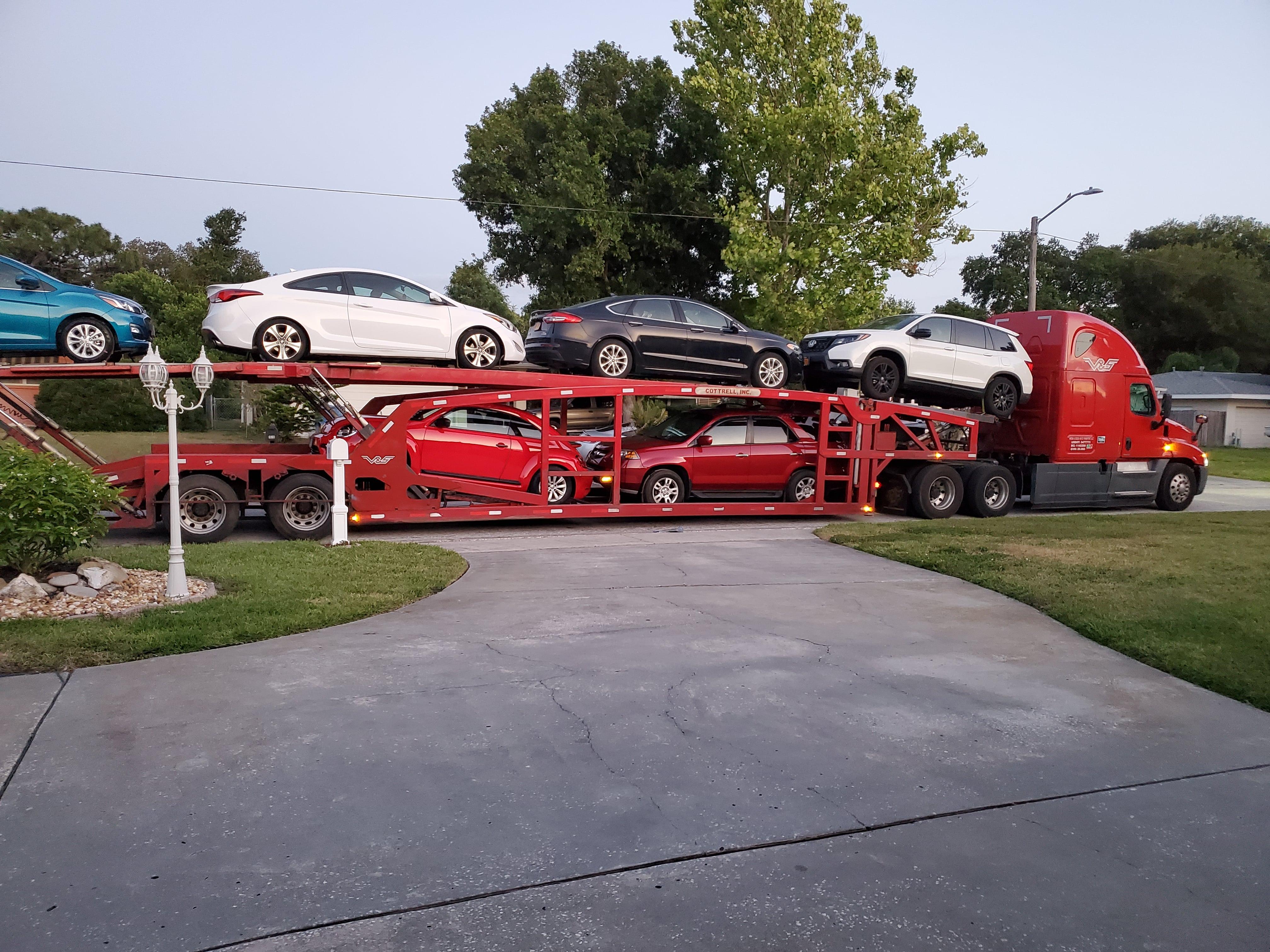If you’re searching for a reliable auto transport company, one of the first things you may notice is that some businesses are labeled as brokers, while others are carriers.
So what’s the difference?
And more importantly:
Who should you book with when shipping your vehicle?
Whether you need state to state car shipping, full cross-country car shipping, understanding the role of brokers and carriers can help you make the safest and smartest decision.
At Nexus Auto Transport, we operate as a professional auto transport broker, meaning we help customers find the best carrier, the best price, and the smoothest shipping experience possible.
Let’s break down why booking with a broker is often the best option.
What Is an Auto Transport Broker?
An auto transport broker is a company that arranges vehicle shipping by connecting customers with licensed, insured carriers.
Brokers do not own the trucks themselves. Instead, they serve as the coordinator and customer advocate throughout the shipping process.
A trusted broker like Nexus Auto Transport handles:
Carrier selection
Price negotiation
Route planning
Pickup and delivery scheduling
Customer communication
Problem-solving during transit
Brokers Simplify the Entire Auto Shipping Process
Because the auto transport industry is made up of thousands of independent trucking companies, customers often struggle to find:
Reliable drivers
Fair pricing
Flexible scheduling
Nationwide availability
That’s exactly where brokers provide value.
What Is an Auto Transport Carrier?
A carrier is the company that physically transports your vehicle.
Carriers own the equipment and employ the drivers who:
Pick up your vehicle
Load it onto the truck
Drive it to the destination
Deliver it safely
Carriers are essential, but most operate with limitations, such as:
Specific routes only
Limited truck space
Minimal customer service infrastructure
Broker vs Carrier: The Key Difference
Here’s the simplest way to think about it:
A carrier moves the car
A broker manages the entire shipping experience
Auto Transport Broker vs Carrier Comparison
Feature | Auto Transport Broker | Auto Carrier |
Owns the truck | No | Yes |
Provides customer support | Yes | Limited |
Access to multiple carriers | ✅ Nationwide | ❌ Only their fleet |
Finds best available pricing | ✅ Yes | Depends on route |
Best for cross-country shipping | ✅ Absolutely | Limited availability |
Handles logistics and scheduling | ✅ Full-service | Customer must coordinate |
Flexible pickup options | ✅ More flexibility | Less flexibility |
Why Booking With an Auto Transport Broker Is Usually the Best Choice
For most customers, choosing a broker provides significant advantages, especially for long-distance or multi-state shipping.
Here are the top benefits:
1. Brokers Give You Access to a Nationwide Carrier Network
One of the biggest challenges in vehicle shipping is availability.
Carriers typically operate within specific regions or along certain routes.
A broker like Nexus Auto Transport works with a nationwide network of pre-screened carriers, giving customers access to:
More shipping lanes
More pickup dates
More delivery options
This makes brokers the best option for:
✅ State to state car shipping
✅ Rural routes
✅ Coast-to-coast relocations
✅ Last-minute moves
2. Brokers Help You Get Better Pricing
Because brokers work with many carriers, they can shop your route across multiple drivers to find competitive rates.
That means you don’t have to call five different trucking companies yourself.
With Nexus Auto Transport, you can also use our car shipping cost calculator to get an accurate quote based on:
Distance
Vehicle size
Transport type (open or enclosed)
Seasonal demand
3. Brokers Save You Time and Effort
Booking directly with a carrier often means:
Limited schedules
Slow response times
Having to contact multiple companies
A broker handles everything in one place.
Nexus Auto Transport coordinates your shipment from quote to delivery, including:
Dispatch
Driver communication
Schedule updates
Support if anything changes
4. Brokers Provide Customer Support Throughout the Shipment
Most carriers are focused on driving, not customer service.
That’s why many customers feel left in the dark when booking directly.
When you book with a broker like Nexus, you have a dedicated team available to answer questions like:
When will pickup happen?
Where is my vehicle now?
What if weather causes delays?
What happens if my schedule changes?
We act as your point of contact from start to finish.
5. Brokers Vet Carriers for Safety and Reliability
Not all carriers are equal.
A broker’s job is to partner only with carriers that meet strict requirements, including:
FMCSA licensing
Active cargo insurance
Safe driver records
Proven performance history
At Nexus Auto Transport, we carefully select carriers to ensure each customer receives professional, secure service.
6. Brokers Offer More Transport Options
A good broker doesn’t just offer one solution.
Nexus provides multiple shipping methods, including:
Open Auto Transport
Open auto transport is the most common and affordable option.
Best for:
Standard vehicles
Daily drivers
Budget-friendly shipping
Enclosed Auto Transport
Enclosed auto transport offers premium protection inside a covered trailer.
Recommended for:
Luxury cars
Classic vehicles
Exotic models
High-value shipments
A broker helps you choose the best option based on your car and budget.
7. Brokers Are Ideal for Cross Country Car Shipping
For long-distance routes, brokers are almost always the best choice.
That’s because cross country car shipping requires:
More carrier coordination
Route flexibility
Multi-day dispatch planning
Reliable nationwide support
Carriers may not have trucks available for coast-to-coast moves, but brokers can locate one quickly through broader networks.
Why Nexus Auto Transport Is the Right Broker to Book With
As a trusted auto transport broker, Nexus Auto Transport delivers the best of both worlds:
Nationwide access
Competitive pricing
Top-rated customer service
Trusted carrier partnerships
When you book with Nexus, you get:
✅ Licensed and insured carriers
✅ Transparent pricing
✅ Open and enclosed transport options
✅ Full-service coordination
✅ Support from pickup through delivery
FAQs: Auto Transport Broker vs Carrier
Is it better to use an auto transport broker?
Yes. Brokers provide better access to carriers, more flexible scheduling, and stronger support, especially for long-distance shipments.
Do brokers charge extra fees?
A broker’s quote includes coordination and carrier cost. In many cases, brokers can secure pricing as good or better than booking directly.
Can I trust an auto transport broker?
You can if they are licensed, established, and transparent. Nexus Auto Transport works only with vetted, insured carriers nationwide.
How do I estimate my car shipping cost?
The fastest way is using a car shipping cost calculator, which factors in mileage, vehicle type, and transport method.
Is open auto transport safe?
Yes. Open transport is the industry standard and is used for most state-to-state and cross-country shipments.
When should I choose enclosed auto transport?
Choose enclosed shipping if your vehicle is high-value, rare, luxury, or needs maximum protection from road exposure.
How long does state to state car shipping take?
Most routes take 1–5 days, depending on distance, carrier availability, and season.
What’s the biggest advantage of booking with Nexus Auto Transport?
Nexus combines:
Broker flexibility
Carrier reliability
Nationwide transport access
Dedicated customer support
We make shipping simple, secure, and stress-free.
Final Thoughts: Broker vs Carrier: Who Should You Book With?
When deciding between an auto transport broker vs carrier, the best choice comes down to service, flexibility, and peace of mind.
For most customers, booking with a trusted broker like Nexus Auto Transport provides:
Better pricing options
Easier scheduling
Nationwide access
Support throughout the shipment
Open and enclosed transport solutions
Whether you’re shipping across the state or across the country, Nexus makes vehicle transport smooth from start to finish.



